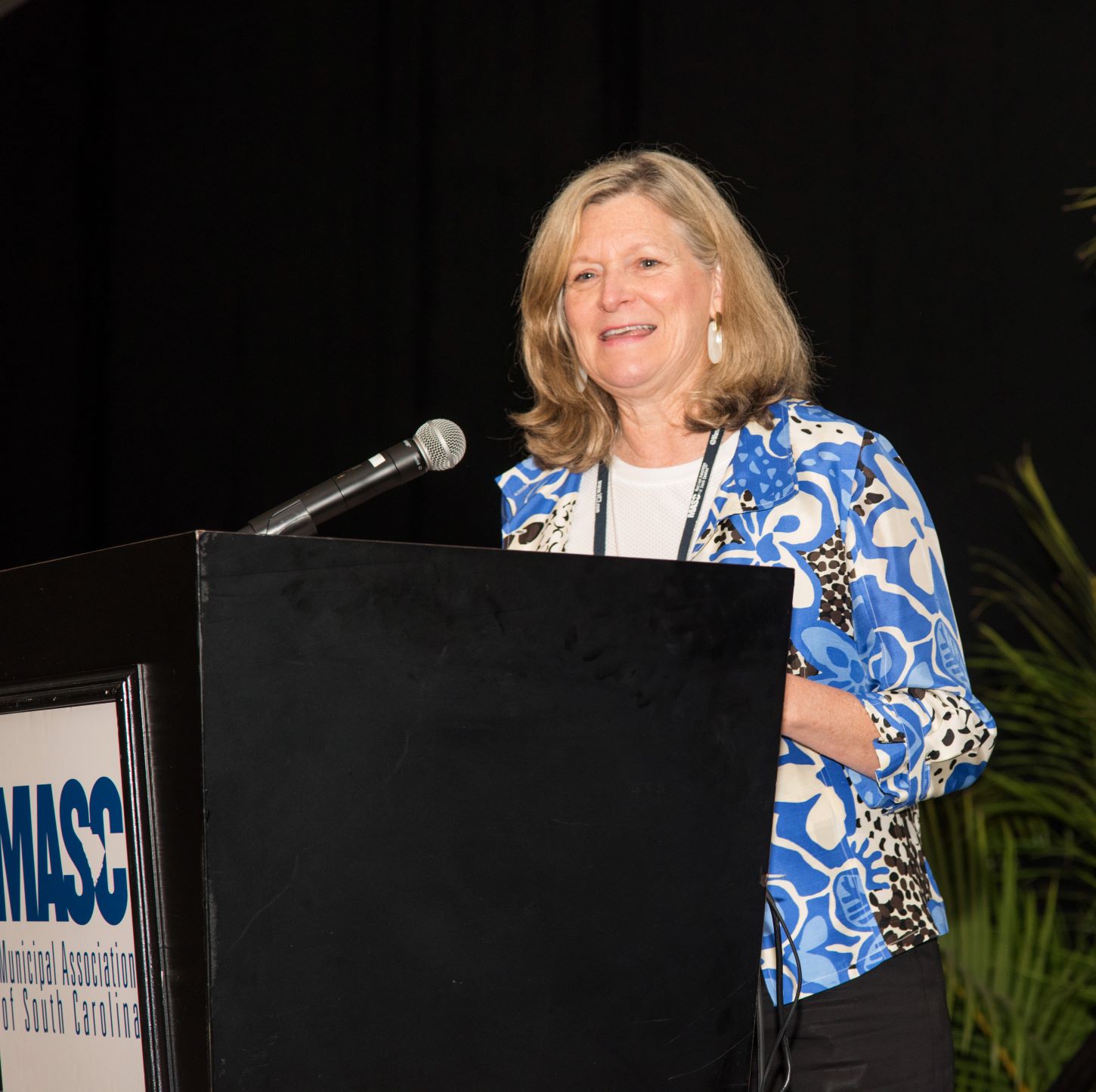
Councilmember Kathy Pender
Delegates at the Municipal Association of South Carolina’s Annual Meeting unanimously elected Kathy Pender, councilmember for the City of Rock Hill, as the Association’s president. She will serve a one-year term that began July 23.
When asked about her vision for South Carolina hometowns, here is what Pender had to say:
How are cities and towns driving success in South Carolina?
Our cities and towns are a primary driver of South Carolina’s economy. More than 60% of our state’s tourism taxes, and more than 65% of the state’s property tax base are located inside our
271 municipalities. Cities provide the key innovation and leadership that make the
revitalization of our downtowns possible. Infrastructure investments and partnerships
in our cities lead to job growth and places where people want to live, because of the available opportunities and quality of life.
South Carolina’s tourism industry also gets a major boost from municipalities when they cultivate an attractive sense of place for visitors, and when they drive the community engagement that makes our destinations more authentic.
Cities can and do foster creativity from artists, make possible sporting events for athletes from around the world, support new businesses and entrepreneurs, offer homes away from home for our students in colleges and universities, and provide local decision-making through
government that is both accessible and attainable.
What makes you proud to be a local elected official?
The world has been through so much over the last 17 months during the COVID-19 pandemic. At the local level, I have seen up close the losses from this difficult time. But I have also seen
communities caring deeply for their residents. From supporting local restaurants and businesses with flexibility to providing volunteer testing and vaccination sites, local elected leaders have shown courage, creativity and compassion for residents and businesses. Cities and towns across the state stepped up to keep residents and businesses successful and safe in these unusual times.
Not all decisions made at the local level are popular, but local officials always had the health and safety of residents at the forefront, and worked to keep channels of communication open with residents to hear many ideas and opinions as they made decisions.
I also witnessed this past 17 months the dedication, courage and ingenuity of our municipal employees who continued the services often taken for granted — from waste collection, police and fire protection, zoning and planning, utilities and recreation. They are among the most essential workers, and I am proud of them.
What do you think are the biggest challenges facing cities and towns?
City leaders are always considering how to manage growth in our communities, whether it’s too much, too little or just the right amount. Top-notch services for our residents and businesses, infrastructure investments for job growth and the decisions that can bolster quality of life residents expect are exceptionally important. Doing this within our budgets
and resources is critical as well.
Out of all the challenges that local elected leaders face now, two stand out to me. First, we must keep residents engaged in the ways they are shaping their community’s future. We need residents and businesses invested in their hometown’s success. Who better to lead that effort than the mayors and councilmembers whom residents can access easily?
Second, we should encourage our youth and young professionals to work in our cities. We need bright, caring folks who understand their communities to become municipal leaders and employees. We need strategies to engage and inspire young people to choose a career path or
a community service path that involves local government. We need their talent and innovation in our business communities and our local governments. This can put us on the path to sustainable, valuable leadership and management.
